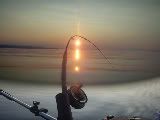Cuba Libre
Well-Known Member
New program sets the bar for saltwater fishing guides
Published: January 21, 2010 3:00 PM
0 Comments The new Tidal Angling Guide Training Program offers a new standard of excellence for sport fishing guides.
It allows us to point to a standard of excellence and market with confidence.
“Experienced guides should have little difficulty in obtaining this certification. I think it’s straightforward information for a guide who’s experienced and has been on the water and fishing with clients,” says Owen Bird at the Sport Fishing Institute of B.C.
“We’ve conducted two pilot programs, one in Campbell River and one in Sandspit. In Campbell River in particular they were very experienced guides – one guide had over 30 years experience – and every one of them said the same thing: We knew all the material, but it was delivered in a way, or we were asked to think about it in ways, that we hadn’t done in years. This was particularly true for the discussions regarding Fisheries management, catch monitoring rationale and resource use.
Pilot participant feedback was that this information and detail in particular was quite useful, and that they would have liked to see even more of it through the course. There’s nothing that would throw an experienced guide a curve ball, but it was also understood that this was worthwhile information to think about. When an experienced guide comes to challenge the course, it includes a one-day review of all of the materials. The challenge is designed to provide detail around what a practicing guide may not know that much about, for example, fisheries resource management issues as it relates to recreational fishing. The focus of the one-day review will be to fill in the gaps before sitting for the assessment.”
Today sport fishing guides are required by Transport Canada to have Marine Emergency Duties, (MED A3), the Radio Operators Card Marine (ROC-M), and, as of November 2009, the Small Vessel Operators Proficiency certification (SVOP). CTAG membership is not mandatory; rather, it is the industry’s own way of providing a higher level of professionalism.
“None of those courses are designed specifically for a fishing guide,” Owen says, “so the thinking is to have a tidal angling guide component to make it relevant. As a certified guide you become entitled to become part of the CTAG membership, which comes with decals, logos, purchase advantage and all of the advocacy that comes behind a group of certified guides.”
Beginning guides can take the entire 12-day course, through which they gain the required tickets, and then, after having acquired 500 hours of guiding, they will be fully certified. On the other hand, an experienced guide who holds all three tickets and has a minimum one thousand hours of guiding experience, can challenge the TAG course (or, if necessary, take the required tickets, such as the new SVOP, and then challenge the TAG).
One of the most appealing aspects of the entire program, is that it is already growing more challenging for guides to understand exactly what is required of them. The CTAG membership allows for this information to be distributed and readily understood by guides, a one-stop-shop for information, courses and certification.
The delivery of the training will be clarified over the coming months, but in general it is recognized that this must be a mobile course, available on sufficient demand. So once a group of Prince Rupert operators have expressed their interest in the training, or in challenging the course, arrangements will be made for it to be delivered locally.
If you’d like to know more about the TAG program, contact Owen Bird at birdo@shaw.ca.
– Black Press

20ft Alumaweld Intruder
Published: January 21, 2010 3:00 PM
0 Comments The new Tidal Angling Guide Training Program offers a new standard of excellence for sport fishing guides.
It allows us to point to a standard of excellence and market with confidence.
“Experienced guides should have little difficulty in obtaining this certification. I think it’s straightforward information for a guide who’s experienced and has been on the water and fishing with clients,” says Owen Bird at the Sport Fishing Institute of B.C.
“We’ve conducted two pilot programs, one in Campbell River and one in Sandspit. In Campbell River in particular they were very experienced guides – one guide had over 30 years experience – and every one of them said the same thing: We knew all the material, but it was delivered in a way, or we were asked to think about it in ways, that we hadn’t done in years. This was particularly true for the discussions regarding Fisheries management, catch monitoring rationale and resource use.
Pilot participant feedback was that this information and detail in particular was quite useful, and that they would have liked to see even more of it through the course. There’s nothing that would throw an experienced guide a curve ball, but it was also understood that this was worthwhile information to think about. When an experienced guide comes to challenge the course, it includes a one-day review of all of the materials. The challenge is designed to provide detail around what a practicing guide may not know that much about, for example, fisheries resource management issues as it relates to recreational fishing. The focus of the one-day review will be to fill in the gaps before sitting for the assessment.”
Today sport fishing guides are required by Transport Canada to have Marine Emergency Duties, (MED A3), the Radio Operators Card Marine (ROC-M), and, as of November 2009, the Small Vessel Operators Proficiency certification (SVOP). CTAG membership is not mandatory; rather, it is the industry’s own way of providing a higher level of professionalism.
“None of those courses are designed specifically for a fishing guide,” Owen says, “so the thinking is to have a tidal angling guide component to make it relevant. As a certified guide you become entitled to become part of the CTAG membership, which comes with decals, logos, purchase advantage and all of the advocacy that comes behind a group of certified guides.”
Beginning guides can take the entire 12-day course, through which they gain the required tickets, and then, after having acquired 500 hours of guiding, they will be fully certified. On the other hand, an experienced guide who holds all three tickets and has a minimum one thousand hours of guiding experience, can challenge the TAG course (or, if necessary, take the required tickets, such as the new SVOP, and then challenge the TAG).
One of the most appealing aspects of the entire program, is that it is already growing more challenging for guides to understand exactly what is required of them. The CTAG membership allows for this information to be distributed and readily understood by guides, a one-stop-shop for information, courses and certification.
The delivery of the training will be clarified over the coming months, but in general it is recognized that this must be a mobile course, available on sufficient demand. So once a group of Prince Rupert operators have expressed their interest in the training, or in challenging the course, arrangements will be made for it to be delivered locally.
If you’d like to know more about the TAG program, contact Owen Bird at birdo@shaw.ca.
– Black Press

20ft Alumaweld Intruder

